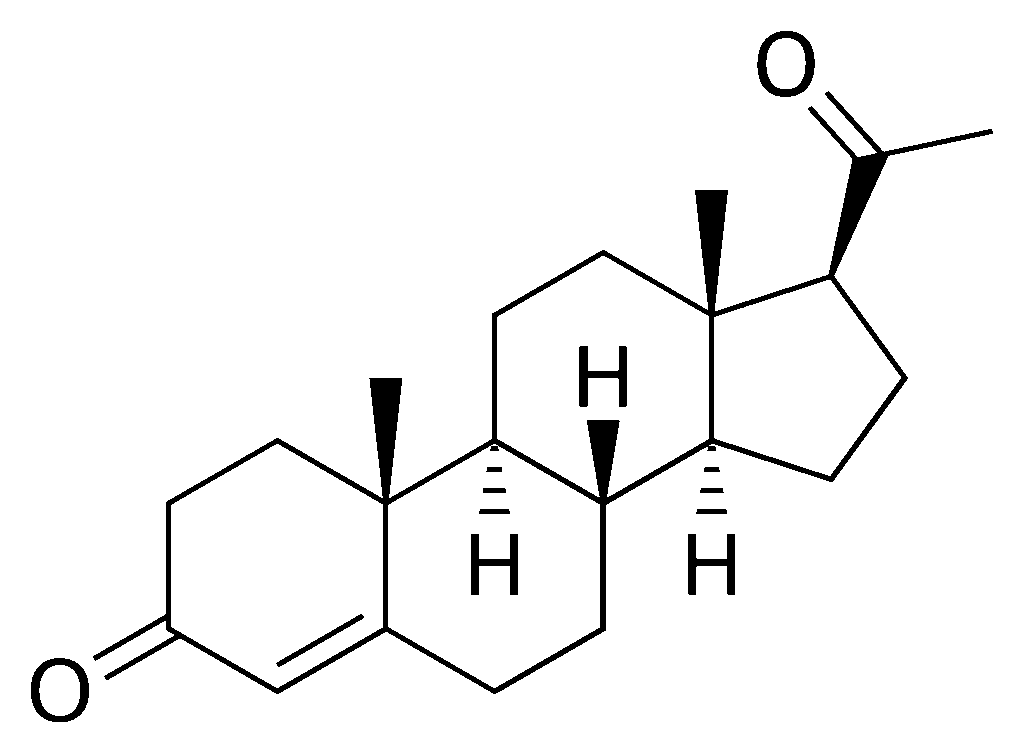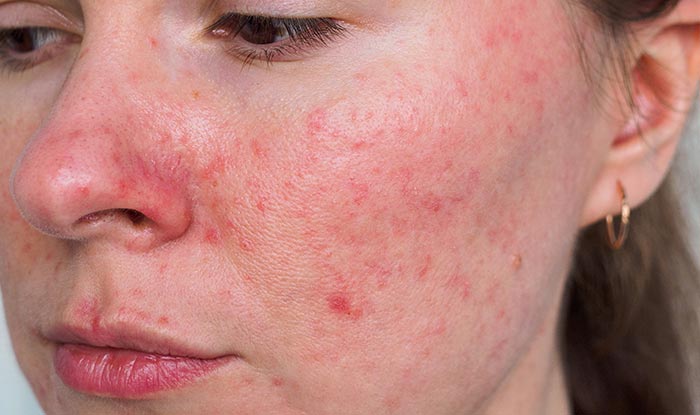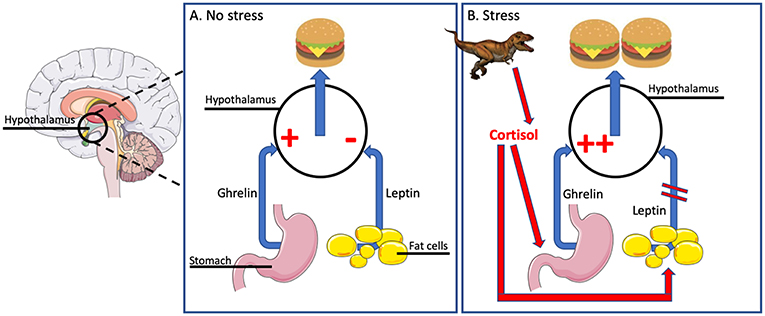Hormones are essential chemical messengers in the body that regulate everything from mood and energy to metabolism and skin health. They control most bodily functions, shaping how we feel, look, and perform daily tasks. When our hormones are balanced, we usually experience clear skin, consistent energy levels, and overall well-being. However, when this balance is disrupted, it can lead to a variety of issues. Hormonal imbalances can result in acne, weight changes, fatigue, and mood swings, affecting the skin and body in noticeable ways.
Understanding how hormones impact the body and skin is crucial for managing and preventing these issues. By recognizing the signs of hormonal imbalance, individuals can take steps to support hormone health and restore balance. In this article, we’ll explore the connection between hormones, skin, and overall health, and provide practical tips for maintaining hormonal wellness. With the right approach, it’s possible to achieve and maintain a balanced hormonal state, improving both skin and overall health.
What Are Hormones and How Do They Work ?

Hormones are chemical messengers produced by various glands in the body, including the thyroid, adrenal glands, ovaries, testes, and pancreas. These hormones travel through the bloodstream to specific organs and tissues, where they help regulate crucial bodily functions. Their roles are diverse, influencing everything from metabolism and appetite to mood, reproduction, and skin health. The impact of hormones is widespread, affecting both internal processes and outward appearance.
The endocrine system is the primary network responsible for producing and regulating hormones. This system includes key organs such as the hypothalamus, pituitary gland, thyroid, adrenal glands, ovaries, and testes. Each of these organs plays a vital role in maintaining hormonal balance, which is crucial for overall health. When this balance is disrupted, it can lead to a wide range of symptoms or health conditions, such as fatigue, weight changes, or skin issues.
Hormones are essential for regulating numerous vital processes, such as growth, immune function, and sleep-wake cycles. They also govern the body’s response to stress. In addition to these internal functions, hormones have a significant impact on more visible aspects of health, such as skin, hair, and body weight. Maintaining hormonal balance is key to overall well-being, as even small imbalances can cause noticeable changes in how we feel and look.
Key Hormones and Their Impact on Skin and Body
Estrogen
Estrogen is the primary female sex hormone, responsible for regulating the female reproductive system, but it also plays a significant role in maintaining skin health. Estrogen promotes collagen production, which is essential for skin elasticity and smoothness. Collagen is a protein that helps keep the skin firm and youthful. When estrogen levels are high, such as during the peak years of fertility, skin tends to look plump, hydrated, and radiant.
As women age, estrogen levels naturally decline, particularly during menopause, leading to changes in the skin. Collagen production slows, leading to the thinning of the skin and the appearance of fine lines and wrinkles. Additionally, skin may become drier due to the reduced water retention capabilities of the skin. This estrogen dip can also result in hair thinning and decreased skin elasticity, contributing to the appearance of sagging.
Progesterone

Progesterone, a crucial hormone in the female body, plays a key role in regulating the menstrual cycle and supporting pregnancy. In addition to its reproductive functions, progesterone also affects skin health. Unlike estrogen, progesterone has a more complex role in skin health, often acting as a balancing agent to counteract the effects of estrogen. However, when progesterone levels are either too high or too low, it can trigger acne, particularly in the days leading up to menstruation.
When progesterone levels rise, they often stimulate sebaceous glands to produce more oil. This excess oil can clog pores, leading to acne, especially around the jawline, chin, and forehead. Many women notice an increase in breakouts during the premenstrual phase, as the hormonal shift leads to higher progesterone levels.
Testosterone
Testosterone, while commonly associated with men, is also produced in small amounts by women. This hormone plays a vital role in various bodily functions, including regulating muscle mass, bone density, and oil production in the skin. Although women typically have lower levels of testosterone compared to men, any imbalance in this hormone can lead to noticeable changes in skin and hair health.
In women, conditions like polycystic ovary syndrome (PCOS) can cause an overproduction of testosterone, which in turn leads to an increase in sebum (skin oil). This excess oil can clog pores, contributing to acne and oily skin. Additionally, high testosterone levels may affect hair growth, leading to thinning of the hair on the scalp and, conversely, excessive hair growth in areas such as the face, chest, or back, a condition known as hirsutism.
Managing testosterone levels is important for overall health, as imbalances can affect both skin and hair. Regular monitoring and treatment can help address these issues and maintain hormonal balance.
Cortisol
Cortisol, often referred to as the body’s primary stress hormone, is produced by the adrenal glands and plays a crucial role in managing the body’s response to stress. It helps regulate several vital processes, including energy levels, blood sugar, and inflammation. Cortisol is necessary for short-term stress responses, providing the body with the energy and focus it needs in moments of crisis. However, when stress becomes chronic, cortisol levels remain elevated for extended periods, which can negatively affect both the skin and the body.
Prolonged high levels of cortisol can lead to various skin issues, including acne, rosacea, and eczema. Cortisol also interferes with the body’s ability to repair itself, meaning wounds and blemishes take longer to heal. Beyond its effects on the skin, excess cortisol can contribute to unhealthy weight gain, particularly around the abdominal area. It influences fat storage and can increase appetite, making it harder to maintain a healthy weight. Chronic cortisol elevation can thus disrupt both skin health and overall well-being, highlighting the importance of managing stress levels for long-term health.
Insulin
Insulin is a hormone produced by the pancreas that regulates blood sugar levels. It allows cells to absorb glucose for energy and helps store excess glucose in the liver. However, when insulin levels are chronically high—often due to a diet high in refined carbohydrates and sugars—this can lead to insulin resistance, where the body becomes less responsive to insulin’s effects.
Insulin resistance is closely associated with weight gain, particularly in the abdominal area. It also triggers an increase in androgens (male hormones), which in turn stimulates sebaceous glands to produce more oil. This increase in oil production can lead to acne outbreaks, especially in adolescents and adults with metabolic imbalances.
How Hormonal Imbalance Affects Skin Health
Hormonal imbalances can have a major effect on the skin’s appearance and health. These imbalances may lead to various skin issues, such as acne, dryness, pigmentation changes, and signs of premature aging. Hormones play a key role in regulating skin oil production, hydration, and cell turnover. When hormone levels are disrupted, it can result in noticeable skin conditions. Understanding how hormones affect the skin is important for managing and preventing these concerns effectively.
Acne and Skin Breakouts

Acne is one of the most common skin conditions associated with hormonal fluctuations. Hormonal imbalances, particularly an increase in androgens such as testosterone, can stimulate the sebaceous glands to produce excess oil. This excess oil can clog pores, creating the perfect environment for blackheads, whiteheads, and pimples to form.
Hormonal acne is most commonly observed during key life stages such as adolescence, pregnancy, and menstruation, when hormone levels naturally fluctuate. However, it is also a significant concern for women with conditions like polycystic ovary syndrome (PCOS). In PCOS, elevated levels of male hormones, such as testosterone, can lead to chronic acne, especially along the lower half of the face, including the jawline, chin, and neck. These hormonal shifts can result in persistent breakouts that may require targeted treatments to manage effectively.
Dryness and Aging
Estrogen plays a key role in keeping the skin hydrated and supporting collagen production. When estrogen levels decrease, especially during menopause, the skin becomes thinner and drier. Reduced collagen production leads to a loss of skin firmness and elasticity, which can cause fine lines and wrinkles to form.
Besides natural aging, factors like UV exposure, pollution, and lifestyle choices can speed up the effects of hormonal aging. Estrogen also helps the skin retain moisture, so a drop in estrogen can leave the skin feeling dry, flaky, and less flexible.
Pigmentation and Dark Spots
Hormonal imbalances can also trigger changes in skin pigmentation. A condition known as melasma, characterized by dark, patchy areas of skin, is often caused by an increase in estrogen and progesterone levels. This can happen during pregnancy (a phenomenon known as the “mask of pregnancy”) or as a result of oral contraceptive use.
Melasma typically appears on the face—especially the forehead, upper lip, and cheeks—due to increased melanin production triggered by hormonal changes. These dark spots can be difficult to treat, though topical treatments like hydroquinone and retinoids may help.
Rosacea and Skin Sensitivity
Hormonal fluctuations, especially those related to menopause or the menstrual cycle, can worsen skin conditions like rosacea. Rosacea is characterized by redness and visible blood vessels, often around the nose and cheeks. Hormonal changes can trigger or intensify rosacea flare-ups, leading to increased facial redness, irritation, and heightened sensitivity.

Similarly, fluctuations in estrogen and progesterone levels can make the skin more delicate and reactive. This increased sensitivity can result in irritation, dryness, and a reduced ability to cope with environmental stressors like wind, extreme temperatures, or sun exposure. As a result, individuals with hormonal imbalances may find their skin becomes more prone to discomfort and damage from external elements.
Hormonal Influence on Weight and Metabolism
Hormones don’t just affect the skin—they also play a central role in regulating metabolism, appetite, and body weight. Imbalances in key hormones can lead to unwanted weight gain or difficulty losing weight, often in specific areas of the body.
The Role of Insulin and Blood Sugar
Insulin is the hormone that helps regulate blood sugar levels by enabling cells to take in glucose from the bloodstream. When insulin levels are consistently high—due to a diet high in refined carbs or sugars—this can lead to insulin resistance, a condition where the body no longer responds efficiently to insulin. Insulin resistance is linked to obesity, particularly abdominal fat, and it increases the risk of developing type 2 diabetes.
The excess insulin in the bloodstream can also stimulate the production of androgens, contributing to acne and further weight gain. Managing blood sugar through a balanced diet and regular exercise can help keep insulin levels in check and promote a healthy metabolism.
Thyroid Hormones and Metabolism
The thyroid gland produces hormones that regulate metabolism, energy levels, and overall body function. Two key thyroid hormones—T3 (triiodothyronine) and T4 (thyroxine)—help determine how quickly the body burns calories and uses energy.
An imbalance in thyroid hormones can lead to significant changes in body weight. Hypothyroidism, or an underactive thyroid, leads to a slowed metabolism, fatigue, weight gain, and even dry skin. On the other hand, hyperthyroidism, or an overactive thyroid, speeds up metabolism, leading to weight loss, nervousness, and increased sweating.
Cortisol and Stress Eating

Cortisol is produced by the adrenal glands in response to stress. While cortisol is necessary for managing stress and regulating energy, chronic stress can lead to elevated cortisol levels, which can result in weight gain, particularly around the belly.
In addition to stimulating fat storage, high cortisol levels increase cravings for high-calorie, sugary, and fatty foods. This emotional eating can lead to weight gain and further stress, creating a vicious cycle that exacerbates hormonal imbalance.
How to Maintain Hormonal Balance
Maintaining hormonal health is crucial for overall well-being. Fortunately, several lifestyle changes and strategies can help keep hormones balanced:
Diet and Nutrition
Eating a balanced diet full of whole foods like fruits, vegetables, healthy fats, and lean proteins can help support hormonal health. Foods rich in omega-3 fatty acids, fiber, and antioxidants can lower inflammation and encourage healthy hormone balance. It is also important to avoid processed foods and limit sugar intake, as too much sugar can cause insulin spikes and increase the risk of insulin resistance.
Exercise and Physical Activity
Regular physical activity plays an important role in regulating hormones and supporting overall health. Exercise helps improve insulin sensitivity, lower cortisol levels, and keep hormone levels balanced. Both aerobic activities like walking or cycling and strength training exercises can help maintain a healthy weight, reduce stress, and boost mood. Staying active on a regular basis is a simple but powerful way to support long-term hormonal and overall well-being.
Stress Management
Chronic stress is a major factor that can upset hormonal balance and affect overall health. Managing stress through mindfulness practices, meditation, deep breathing, yoga, or spending time outdoors can help keep cortisol levels in check. These activities support relaxation and help the body recover from daily pressures. Making time for stress management is important for maintaining healthy hormone levels and promoting better physical and emotional well-being.
Sleep and Hormonal Regulation
Getting enough sleep is crucial for maintaining hormonal health. When you do not get sufficient rest, it can disrupt the production and balance of important hormones like cortisol, insulin, and even growth hormone. Poor sleep can lead to higher stress levels, increased blood sugar problems, and early signs of skin aging.
To support healthy hormone levels, it is important to aim for 7 to 9 hours of quality sleep each night. Good sleep helps the body repair itself, balance hormone production, and keep both skin and overall health in better condition. Creating a regular sleep routine, avoiding screens before bed, and keeping the bedroom quiet and dark can help improve sleep quality and support hormonal well-being.
Conclusion: Embracing Your Hormonal Health
Hormones play a central role in controlling nearly every function of our body, from how we feel each day to how our skin appears. When hormones are balanced, we enjoy better energy levels, clear skin, and emotional stability. However, even small imbalances can lead to a wide range of symptoms, such as acne, weight gain, tiredness, mood swings, and even more serious health problems over time. Understanding how hormones affect both the skin and body is an important step toward managing and improving overall health.
Simple lifestyle changes can make a big difference in supporting hormonal balance. Eating a healthy diet, staying active, managing stress, and getting enough sleep are all essential ways to care for our hormones. These habits not only help maintain smoother, healthier skin but also improve how we feel and function each day. By learning to support our hormones naturally, we can build stronger health foundations and enjoy a more energetic, vibrant life.

